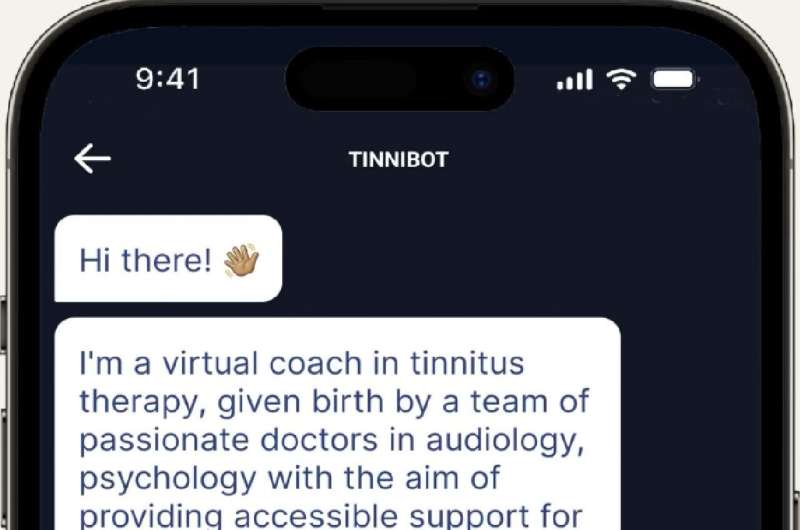The team from Australian, New Zealand, French and Belgian universities reports these findings in Frontiers in Audiology and Otology.
It offers some hope for millions affected by tinnitus, who have been told that there is nothing they can do about it, face long queues waiting for treatment, or can’t afford the costs of specialist support.
The initial trial worked with 30 sufferers, of whom almost two-thirds experienced a “clinically significant improvement.” The team is now planning larger trials in the UK in collaboration with the University College London Hospital.
The app, MindEar, is available for individuals to trial for themselves on a smartphone.
Tinnitus is common, affecting up to one in four people. It is mostly experienced by older adults but can appear for children. For some, it goes away without intervention. For others, it can be debilitatingly life-changing: affecting hearing, mood, concentration, sleep, and in severe cases, causing anxiety or depression.
“About 1.5 million people in Australia, 4 million in the UK and 20 million in the U.S. have severe tinnitus,” says Dr. Fabrice Bardy, an audiologist at Waipapa Taumata Rau, University of Auckland and lead author of the paper. Dr. Bardy is also co-founder of MindEar, a company set up to commercialize the MindEar technology.

